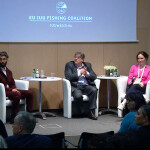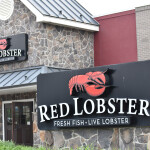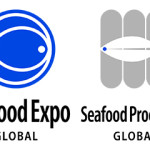Fort Lauderdale, Florida, U.S.A.-based Netuno USA is partnering with Tampa Bay, Florida-based shellfish farming firm Two Docks Shellfish, to investigate the possibility of growing seaweed in southwest Florida using oyster-farming equipment.
Netuno USA, which supplies frozen seafood – particularly snapper and grouper, primarily to the foodservice sector – has committed to the project for both commercial and environmental reasons, according to Netuno Sustainability Manager Andre Brugger.
“Seaweed has a lot of different applications.” Brugger said. “Some species can be used for human consumption while others can be used as a key ingredient in biofuels or bioplastics, which we can then use for our packaging, for example.”
But in light of increasingly ominous warnings about the unsustainable levels of carbon being emitted into the Earth’s atmosphere, punctuated by the latest assessment report of the Intergovernmental Panel on Climate Change, a United Nations-supported body synthesizes research on global warming, Brugger said Netuno is also interested in seaweed’s potential for removing carbon from the ocean and atmosphere.
“All efforts to sink carbon from atmosphere is welcome, and this is essentially what seaweed does through photosynthesis,” Brugger said.
Netuno and Two Docks Shellfish, a family- and employee-owned company producing clams and oysters, will jointly research two seaweed species, Eucheuma isiforme and Caulerpa racemosa to determine which will work better for the purposes of commercial farming.
With significant scientific credentials, Two Docks Shellfish will oversee the research and in-water project tasks. Two Docks Farm Manager Marc Scott, who has a master’s degree in marine biology and is a master diver, will oversee the project on the water, while Two Docks Shellfish President Aaron Welch III – who also works as an adjunct professor at University of Miami’s Rosenstiel School of Marine and Atmospheric Science’s aquaculture program. Loretta Roberson, from the Marine Biological Laboratory at Woods Hole Oceanographic Institution macroalgae biologist Loretta Roberson and plant pathologist Aaron Welch Jr. are also collaborating on the project.
“We’re very excited to be working with Netuno to explore the potential for seaweed production on shellfish leases in the state of Florida,” Welch III said. “Seaweeds are an assimilative organism, which means they remove nutrients from the water column. We think that farming these assimilative organisms could one day provide significant environmental benefits to the region and may ultimately reduce the nutrient levels that help fuel red tide and other harmful algae blooms.”
In June, Netuno formally backed the Global Dialogue on Seafood Traceability, a business-to-business platform that was established to advance a unified framework for interoperable seafood traceability practices. The GDST 1.0 standards, published in March 2020, seek to “improve the reliability of seafood information, reduce the cost of seafood traceability, contribute to reduce supply chain risk and contribute to securing long-term social and environmental sustainability.”
“Seafood traceability is a big deal,” Brugger said. “Traceability will allow us to know the story of where our seafood originates and where it has been, every step in the process. Knowing this allows us to hold everyone in the supply chain accountable to better practices and we can make better decisions about who we are doing business with.”
Netuno has publicly committed to a goal of sourcing at least 90 percent of its seafood from a fishery with a sustainability certification or one that is actively engaged in a fishery improvement project.
“Meeting this goal is important to us because it shows the industry that we are serious about sustainably-sourced seafood, and we hope will inspire others to invest in this as well. But we are aware that not all certifying bodies address the issue of traceability and by committing to the new GDST’s standards, we hope to address this gap.” Netuno Sales and Marketing Director Amanda Antonio said in a press release. “We are currently evaluating our processes and systems to see what traceability information we can incorporate into our operations now, so that as the standards evolve, we can evolve with it. We know technology is going to be a big part of these changes, and we want to be ahead of the game. GDST will help us get there.”
Photo courtesy of Two Docks Shellfish







